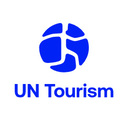Opportunity for All: Samarkand Academy Adds to Growing UNWTO Education Network
The World Tourism Organization (UNWTO) has further enhanced its status as the global leader in advancing education and skills development for the tourism sector. As one of the top priorities of the Organization’s leadership, and fully endorsed by all Member States, education serves as the foundation for building more resilience and accelerating the shift to greater sustainability.
Against the backdrop of the 25th General Assembly (Samarkand, Uzbekistan, 16-20 October 2023), Secretary-General Zurab Pololikashvili visited the new Tourism Academy Samarkand in Collaboration with UNWTO. The Academy will train students new to the sector as well as those already working in tourism, giving them the skills they need to grow their careers. The Secretary-General praised the commitment of President President Shavkat Mirziyoyev and Minister Aziz Abdukhakimov to investing in education and professional training and for recognizing the role both can play outside of the tourism sector itself.
The Samarkand Academy is just the latest in a growing network of education initiatives spearheaded by UNWTO. Just one month before the General Assembly, against the backdrop of this year’s World Tourism Day (27 September), the Secretary-General visited the newly-opened Riyadh School for Hospitality and Tourism in Collaboration with UNWTO. The school has already welcomed its first students and aims to welcome many thousands more, both from the Kingdom of Saudi Arabia itself as well as from across the wider region and the world.
Alongside its Academies, UNWTO is transforming tourism education at every level. The Education Toolkit, launched out of the UNWTO Regional Office for the Middle East, is designed to support Member States everywhere introduce tourism as a high school subject. This stands alongside the growing UNWTO Tourism Online Academy, the UNWTO Students League and now the Bachelor’s Degree in Sustainable Tourism Management offered by UNWTO in partnership with the Lucerne University of Applied Sciences and the Arts of Switzerland, in supporting people at every stage of their educational journey in tourism.
Education as a priority for the sector will next be highlighted at the Minister Summit hosted by UNWTO at the World Travel Market (London, 6 November).
RELATED LINKS
About UN Tourism
The World Tourism Organization (UN Tourism) is the United Nations agency responsible for the promotion of responsible, sustainable and universally accessible tourism.
As the leading international organization in the field of tourism, UN Tourism promotes tourism as a driver of economic growth, inclusive development and environmental sustainability and offers leadership and support to the sector in advancing knowledge and tourism policies worldwide.
Our Priorities
Mainstreaming tourism in the global agenda: Advocating the value of tourism as a driver of socio-economic growth and development, its inclusion as a priority in national and international policies and the need to create a level playing field for the sector to develop and prosper.
Promoting sustainable tourism development: Supporting sustainable tourism policies and practices: policies which make optimal use of environmental resources, respect the socio-cultural authenticity of host communities and provide socio-economic benefits for all.
Fostering knowledge, education and capacity building: Supporting countries to assess and address their needs in education and training, as well as providing networks for knowledge creation and exchange.
Improving tourism competitiveness: Improving UN Tourism Members' competitiveness through knowledge creation and exchange, human resources development and the promotion of excellence in areas such as policy planning, statistics and market trends, sustainable tourism development, marketing and promotion, product development and risk and crisis management.
Advancing tourism's contribution to poverty reduction and development: Maximizing the contribution of tourism to poverty reduction and achieving the SDGs by making tourism work as a tool for development and promoting the inclusion of tourism in the development agenda.
Building partnerships: Engaging with the private sector, regional and local tourism organizations, academia and research institutions, civil society and the UN system to build a more sustainable, responsible and competitive tourism sector.
Our Structure
Members: An intergovernmental organization, UN Tourism has 160 Member States, 6 Associate Members, 2 Observers and over 500 Affiliate Members.
Organs: The General Assembly is the supreme organ of the Organization. The Executive Council take all measures, in consultation with the Secretary-General, for the implementation of the decisions and recommendations of the General Assembly and reports to the Assembly.
Secretariat: UN Tourism headquarters are based in Madrid, Spain. The Secretariat is led by the Secretary-General and organized into departments covering issues such as sustainability, education, tourism trends and marketing, sustainable development, statistics and the Tourism Satellite Account (TSA), destination management, ethics and risk and crisis management. The Technical Cooperation and Silk Road Department carries out development projects in over 100 countries worldwide, while the Regional Departments for Africa, the Americas, Asia and the Pacific, Europe and the Middle East serve as the link between UN Tourism and its 160 Member States. The Affiliate Members Department represents UN Tourism's 500 plus Affiliate members.
UN Tourism Communications Department
+34 91 567 8100
UN Tourism
